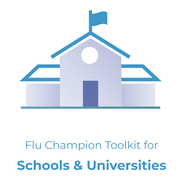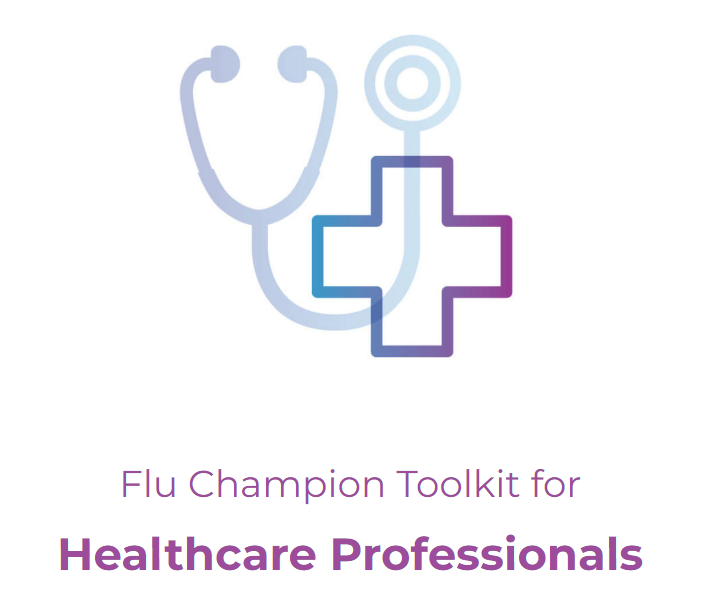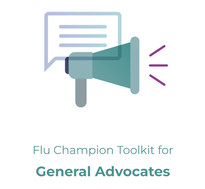Skip the Flu (not the vaccine) Campaign
With the colder months comes flu season—and now is the time to get prepared. Get vaccinated and skip the flu so that you don’t miss out on good times with your friends and family.
CDC reports higher hospitalization rates earlier than usual
CDC reports higher hospitalization rates earlier than usual
- Experts say the flu vaccine is still the best way to protect yourself and your family
- Seniors, young children, adults with chronic conditions, and pregnant women are among the people at higher risk of developing flu complications
- Vaccines are available in NH at health care provider offices, local pharmacies, urgent care centers, and local VNA/home health community clinics
In response to higher than usual rates of flu cases and hospitalizations, The New Hampshire Public Health Association (NHPHA), in collaboration with Families Fighting the Flu, has launched a new campaign focusing on flu prevention. In line with the nation’s emphasis on preventive measures, NHPHA’s new campaign, “Skip the flu, not the vaccine,” reminds Granite Staters that the flu shot remains the most effective way to prevent influenza infection and its potential health complications. It highlights the recommendation that people ages 65 and older talk with their doctors or pharmacists about receiving stronger flu vaccines since their immune systems might not respond as well to regular flu immunizations.
Other population groups at risk include young children, pregnant people, and people with certain chronic conditions, such as asthma, diabetes, lung disease and heart disease. In these cases, the flu vaccine is especially important to reduce the risk of any serious symptoms or complications. Vaccination is also important for health care professionals and workers in long-term care facilities, to prevent them from spreading influenza to the vulnerable communities with whom they work.
This year, flu vaccines distributed in the United States are quadrivalent, meaning that they guard against four different flu strains, with the most common ones being influenza A and B. In addition to getting the yearly vaccine, there are other ways to fight flu, including avoiding contact with people who are sick, staying home if you are sick, covering your mouth when coughing or sneezing, and washing your hands frequently.
Additionally, another desired effect of curbing flu complications and hospitalizations is to relieve the strain on our hospitals and health care systems. If communities work toward prevention and vaccination with health campaigns such as NHPHA’s, we can reduce the number of individuals with flu so that we do not overwhelm our hospitals and health care system.
Influenza vaccination is available at health care provider offices, local pharmacies, urgent care centers, and local VNA/home health community clinics across New Hampshire. Although the general recommendation is to get the vaccine in the early fall, flu immunizations will still be effective as long as flu viruses are circulating, regardless of when you get them. For more information about influenza, including symptoms, prevention, treatment, and flu activity, visit www.cdc.gov/flu/.
Other population groups at risk include young children, pregnant people, and people with certain chronic conditions, such as asthma, diabetes, lung disease and heart disease. In these cases, the flu vaccine is especially important to reduce the risk of any serious symptoms or complications. Vaccination is also important for health care professionals and workers in long-term care facilities, to prevent them from spreading influenza to the vulnerable communities with whom they work.
This year, flu vaccines distributed in the United States are quadrivalent, meaning that they guard against four different flu strains, with the most common ones being influenza A and B. In addition to getting the yearly vaccine, there are other ways to fight flu, including avoiding contact with people who are sick, staying home if you are sick, covering your mouth when coughing or sneezing, and washing your hands frequently.
Additionally, another desired effect of curbing flu complications and hospitalizations is to relieve the strain on our hospitals and health care systems. If communities work toward prevention and vaccination with health campaigns such as NHPHA’s, we can reduce the number of individuals with flu so that we do not overwhelm our hospitals and health care system.
Influenza vaccination is available at health care provider offices, local pharmacies, urgent care centers, and local VNA/home health community clinics across New Hampshire. Although the general recommendation is to get the vaccine in the early fall, flu immunizations will still be effective as long as flu viruses are circulating, regardless of when you get them. For more information about influenza, including symptoms, prevention, treatment, and flu activity, visit www.cdc.gov/flu/.





